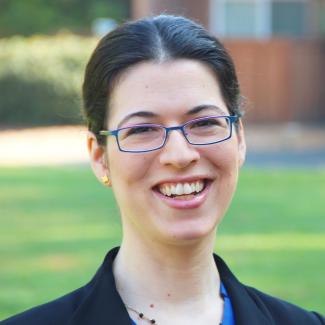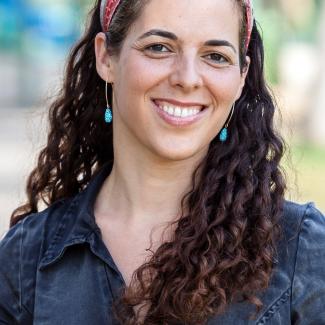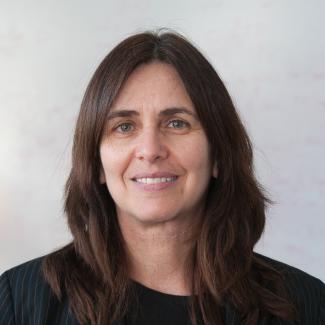Speakers: Ron Rivest (MIT), Hal Varian (Google), Rediet Abebe (Harvard), & Jennifer Chayes (UC Berkeley)
Discussants: Helen Nissenbaum (Cornell Tech), Michal Gal (Haifa University), & Martha Minow (Harvard)
A virtual version of this event was held on July 20 – 21, 2020. The in-person version of this event has been rescheduled to Summer 2022. Please go to this webpage for more information on the rescheduled event: https://simons.berkeley.edu/workshops/algorithm-design-law-and-policy
Two decades ago, Lawrence Lessig famously coined the term “code is law,” speaking to the importance of computer code as a central regulating force in the digital era. Today, as the usage of algorithms in society is exploding, it is becoming increasingly clear that algorithms are regulating human behavior in a variety of different manners. Algorithms have been infiltrating — and increasingly governing — every aspect of our lives as individuals and as a society. Governance by algorithms raises a whole new set of technical, social, ethical, and legal challenges, to ensure accountability, fairness, and equality, as well as fundamental rights such as privacy and free speech. Furthermore, this development reflects the rise of unmonitored private power, which may escape traditional checks and balances.
Tackling these challenges requires an interdisciplinary effort aimed at bridging the gap between ethical, legal and social norms and the performance of algorithmic systems. For instance, notions like privacy or fairness, which are formulated as ethical norms and legal doctrines, are increasingly defined as mathematical theorems in computer science. Are these formulations compatible? How does one reconcile legal and ethical standards with algorithmic performance? Could algorithms be sufficiently transparent to be subjected to public and legal oversight? How does one design checks and balances for algorithmic governance? These questions are highly relevant to a diverse range of topics including privacy in data analysis, fairness in algorithmic decision-making, duty of care in autonomous driving, free speech in algorithmic content moderation, and competition in algorithmic pricing.
This workshop will bring together researchers and scholars from diverse disciplines, including: computer science, law, ethics, social science, and data science. Our short-term goal is to identify concrete research problems of joint interest, which will benefit from a collaborative interdisciplinary approach over the next few years, and to form the necessary connections to tackle them as a community. Our long-term goal is to enable decades of legal and ethical thought to inform algorithm design, and the mathematical rigor and power of computer science theory to inform lawmaking.
Rediet Abebe (Harvard), Veronica Alexander (UC Berkeley), Itai Arieli (Technion), Ken Bamberger (UC Berkeley), Oren Bar-Gill (Harvard), Solon Barocas (Microsoft Research), Peter Bartlett (UC Berkeley), Yahav Bechavod (Hebrew University), Omer Ben-Porat (Technion), Yochai Benkler (Harvard), Elettra Bietti (Harvard), Michael Birnhack (Tel Aviv University), Christian Borgs (UC Berkeley), Simina Brânzei (Purdue University), Linda Burton (UC Berkeley), Ran Canetti (Boston University), Daniela Caruso-Micali (Boston University), Karni Chagal (University of Haifa), Jennifer Chayes (UC Berkeley), Aloni Cohen (Boston University), Julie Cohen (Georgetown), Vincent Conitzer (Duke University), Rachel Cummings (Georgia Institute of Technology), Stacey Dogan (Boston University), Paul Duetting (Google/LSE), Orr Dunkelman (University of Haifa), John Eason (University of Wisconsin, Madison), Niva Elkin-Koren (University of Haifa), Lili Fabish Schor (University of Haifa), Dan Feldman (University of Haifa), Michal Feldman (Tel Aviv University), Yuval Feldman (Bar Ilan University), Michael Froomkin (University of Miami), Michal Gal (University of Haifa), Avi Gal (Technion), Marzyeh Ghassemi (University of Toronto), Talia Gillis (Harvard), Kira Goldner (Columbia University), Shafi Goldwasser (Simons Institute), Ellen Goodman (Rutgers), Ayelet Gordon (Hebrew University), Ben Green (Harvard), James Grimmelmann (Cornell Tech), Nika Haghtalab (Carnegie Mellon University), Jodi Halpern (UC Berkeley), Assaf Hamdani (TAU), Moritz Hardt (UC Berkeley), Shlomi Hod (Boston University), Lily Hu (Harvard University), Nicole Immorlica (Microsoft Research), Meena Jagadeesan (Harvard), Sonia Katyal (UC Berkeley), Michael Kearns (University of Pennsylvania), Michael Kim (Stanford University), Valerie King (University of Victoria), Aleksandra Korolova (University of Southern California), Katrina Ligett (Hebrew University of Jerusalem), Irene Lo (Stanford University), Martha Minow (Harvard University), Jamie Morgenstern (University of Pennsylvania), Deirdre Mulligan (UC Berkeley), Moni Naor (Weizmann Institute of Science), Anthony Niblett (University of Toronto), Noam Nisan (Hebrew University of Jerusalem), Helen Nissenbaum (Cornell Tech), Kobbi Nissim (Georgetown University), Ziad Obermeyer (UC Berkeley), Sigal Oren (Ben Gurion University), Sunoo Park (Harvard/MIT), Frank Partnoy (UC Berkeley), Benny Pinkas (Bar Ilan University), Ariel Porat (Tel Aviv University), Manish Raghavan (Cornell), Amnon Reichman (University of Haifa), Omer Reingold (Stanford University), Ronald Rivest (MIT), Eyal Ronen (TAU), Guy Rothblum (Weizmann Institute), Pam Samuelson (UC Berkeley), Jayshree Sarathy (Harvard), Ayelet Sela (Bar Ilan University), Tomer Shadmy (Hebrew University), Yonadav Shavit (Harvard University), Josh Simons (Harvard), Adam Smith (Boston University), Ran Smorodinsky (Technion), Ana-Andrea Stoica (Columbia), Katherine Strandburg (NYU), Pragya Sur (Harvard University), Inbal Talgam-Cohen (Technion), Salil Vadhan (Harvard University), Hal Varian (Google, Inc.), Salome Viljoen (Cornell Tech), Matt Weinberg (Princeton University), Dan Weitzner (MIT & Georgetown), Patricia Williams (Northeastern University), Jennifer Wortman Vaughan (Microsoft Research), Gal Yona (Weizmann Institute)






